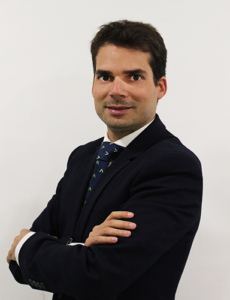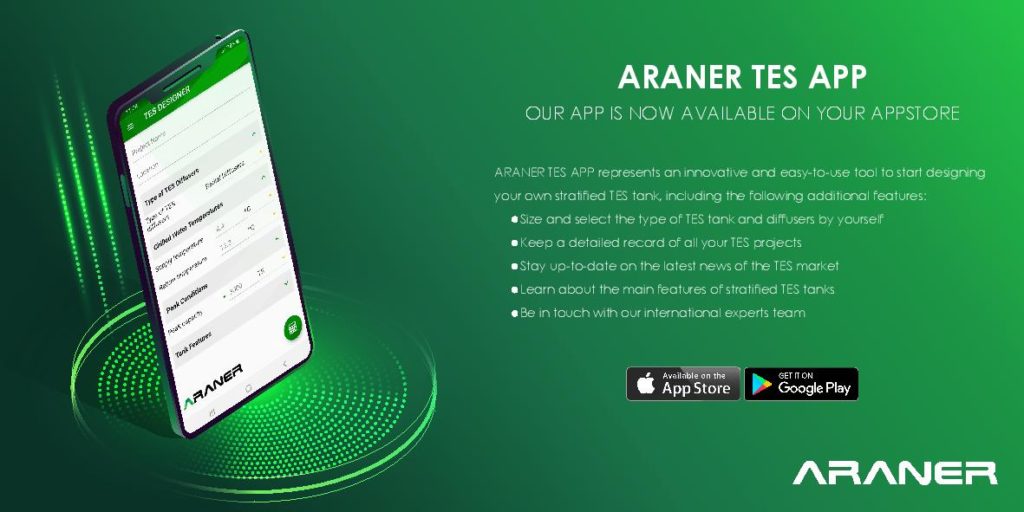Company’s commercial director discusses the need for addressing gap in technical knowledge to promote widespread adoption of thermal energy storage in District Cooling projects in the region

Guillermo Martinez
DUBAI, UAE, 26 November 2019: ARANER organised an international seminar on cooling energy storage on November 5 in Dubai. The seminar explored the effective implementation of thermal energy storage (TES) systems in District Cooling and turbine inlet air cooling (TIAC) applications. Guillermo Martinez, Commercial Director, Araner, said the seminar touched on the benefits of thermal energy storage and the basics of its operation. It also discussed the implications of a more detailed design. Further, the seminar included an in-depth discussion of ASHRAE standards and guidelines and the presentation of case studies to promote best practices, followed by the launch and demonstration of the company’s thermal energy storage app. “We hope the app can help end users, such as owners and consultants, to decide on the optimum thermal energy storage size and if it is feasible for them to install thermal energy storage or not, by looking at parameters like budget and cost,” he said.
The Araner TES App, Martinez explained, is a tool that allows stakeholders to design their own stratified TES tanks by giving users the opportunity to size and select the type of TES tank, keep a detailed record of TES projects, stay up-to-date on the latest news related to the TES market, learn about the main features of stratified TES tanks and be in touch with the company’s international team of experts. Martinez said that currently, there is a gap in the market for a software or app that offers specific calculation for TES and that the app will save users a lot of time by facilitating civil and mechanical component calculations for TES and applying all guidelines and restrictions through the formula, which is otherwise a time-demanding process when considering different options. “With this app, someone with basic- or medium-level knowledge about TES can make some calculations and compare different options to see if it is feasible and, for example, see the advantage of doing TES above ground than doing it under ground,” he said. The app, he said, is free of charge and available on all app stores for Android and Apple products.
Martinez said the development of the app and the organisation of the seminar is part of the company’s mission to promote best practices in the integration of TES in District Cooling by leveraging its experience from projects across Middle East, Asia and South America. “Typically, plants many years back didn’t have thermal energy storage,” he said. “For the last year, thermal energy storage is implemented and is one of the basic components in plants. But still, the knowledge on its working parameters is not as good as in other components that are more typical, like chillers and pumps.”
Martinez said the event attracted attendees from Dubai Municipality, representatives from key District Cooling players in the UAE, as well as decision-makers from the oil & gas sector, among many other stakeholders, which showcased the local market’s growing interest in TES systems. “There were very interesting questions that led to open discussion and brainstorming about different topics, like Low Delta T syndrome,” he said.
Martinez highlighted how promoting adoption of TES is especially important in view of growing energy demand, globally. Integration of TES, he said, can reduce the electrical peak demand of any District Cooling plant by 20-30%, depending on the project. This, he said, is especially beneficial for energy and utility companies, such as DEWA, as reducing peak consumption of the highest energy consumer in the region, which is cooling, would help optimise power supply and demand. He said, “For the users and the owners, it also helps them reduce the peak consumption, and they can reduce electrical feeding from the plant, reduce connections charges and achieve savings on capital cost.” These benefits he said, have pushed authorities in the GCC region countries towards TES, with Kuwait making TES mandatory for plants above 500 tonnes of refrigeration and the municipalities in Dubai and Abu Dhabi also recommending and promoting TES through their regulations. However, Martinez said there is still a need to promote technical knowledge on design and working parameters to remove any apprehensions in the market and to promote its adoption. “The technology,” he said, “is being implemented more and more, and almost everyone in the sector agrees it’s good, but still technical details are not well known for everyone to really optimise it.”

Copyright © 2006-2025 - CPI Industry. All rights reserved.